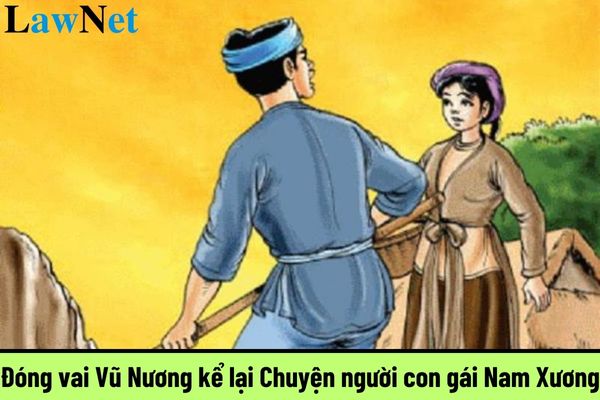What is the sample essay on recounting the story "Chuyện người con gái Nam Xương" by Vu Nuong's statement in the most distinctive manner? What are the regulations on classes for lower secondary school students in Vietnam?
What is the sample essay on recounting the story "Chuyện người con gái Nam Xương" by Vu Nuong's statement in the most distinctive manner?
Students may refer to the following sample essay on recounting the story "Chuyện người con gái Nam Xương" by Vu Nuong's statement in the most distinctive manner:
|
Sample essay on recounting the story "Chuyện người con gái Nam Xương" by Vu Nuong's statement in the most distinctive manner My name is Vu Thi Thiet, from the village of Nam Xuong. Born into a poor family, I was loved by everyone from a young age because of my gentle and virtuous nature. That year, I married Truong Sinh – a man from a wealthy family, but he was notorious for his jealousy and suspicious nature. Despite this, I always endeavored to fulfill my duties as a wife and daughter-in-law to the fullest. |
*Note: The information is for reference purposes only./.

What is the sample essay on recounting the story "Chuyện người con gái Nam Xương" by Vu Nuong's statement in the most distinctive manner? What are the regulations on classes for lower secondary school students in Vietnam?(Image from the Internet)
What are the regulations on classes for lower secondary school students in Vietnam?
According to Article 16 of the school charter issued with Circular 32/2020/TT-BGDDT, classes for lower secondary school students are organized as follows:
- Students shall be divided into classes. Each class shall have a class monitor and deputy class monitors who are self-nominated or introduced by the homeroom teacher and elected by the students of the class at the beginning of each academic year or after each semester. Each class shall be divided into different student teams; and each team shall have a team leader and deputy team leader who are self-nominated or introduced by the homeroom teacher and elected by the team members at the beginning of each academic year or after each semester.
- Activities in classes shall be carried out in a democratic, autonomous and cooperative manner. Each student shall proactively contribute to development of the operational plans of their team and their class with teacher’s assistance.
- Chairpersons of provincial People’s Committees shall stipulate number of students in each class with the aim of reducing number of students in one class; ensure that each class at the lower secondary or upper secondary level has a maximum of 45 students.
- Number of students in each class of a special school is provided for in organizational and operational regulations for special schools.
What are the rights of lower secondary school students when attending school in Vietnam?
According to Article 83 of the Law on Education 2019, the rights of lower secondary school students when attending school are as follows:
- Receive education and training so as to develop comprehensively and realize their potentials to the fullest.
- Receive respect; equal opportunities in education and learning; to have their talents, gifts, creations and inventions developed; to receive full information concerning their own learning and training.
- Have the possibility of leaping grades, shortening programme duration, learning at an age higher than regulated, extending programme duration or repeating class, be enabled to learn educational programmes as prescribed by law.
- Learn in a safe and healthy educational environment.
- Be awarded degrees/diplomas or certificates after completing educational levels, training qualifications or completing educational programmes as prescribed by law.
- Participate in collective activities in educational institutions in accordance with the law.
- Use infrastructure, libraries, equipment and facilities assigned to learning, cultural, sporting, athletic activities at educational institutions.
- Submit, directly or through their legal representatives, to educational institutions measures for the improvement of educational institutions, to protect learners' rights and interests.
- Benefit from preferential State policies in recruitment into State agencies upon graduation with excellent records and good conduct.
- Elect representatives for school council as prescribed by law.

